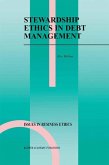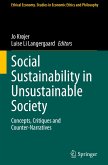Banks are frequently considered usurers. Is it possible to talk about ethics when you analyse banking activity? This book focuses on this question and starts with the history and the philosophy. Philosophers like Aristotle, Immanuel Kant and John Stuart Mill proposed different theories about the need for ethics in finance. If we accept Mill's thought, the production of wealth in society is driven by the personal pursuit of profit. But - unfortunately - this does not, on its own, ensure collective well-being. It must be guided by a superior mechanism which transforms it into wealth for all. This introduces the role of financial institutions, which often have to comply with legal obligations. The book focuses on the role that these institutions have in supporting the 'ethical' use of money. The author analyses a number of cases in banks and the financial industry and discusses topics like anti-money laundering, anti-usury, islamic finance, microcredit and bank rescue systems, including not only best practices but also examples of unethical financial management.
Bitte wählen Sie Ihr Anliegen aus.
Rechnungen
Retourenschein anfordern
Bestellstatus
Storno









